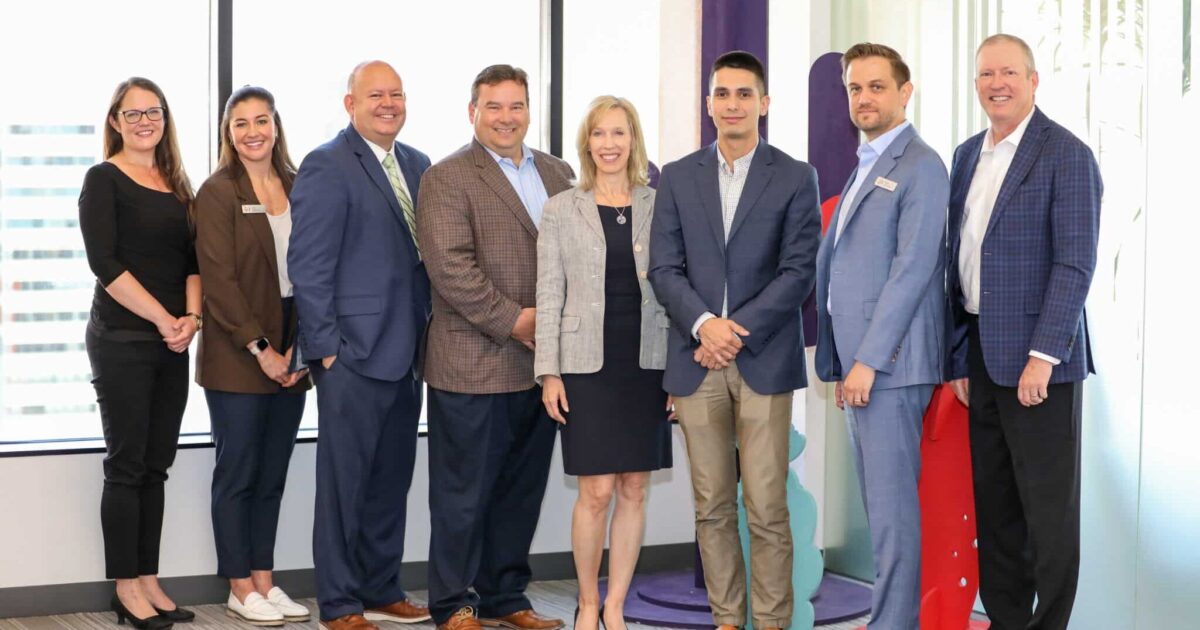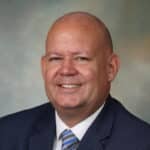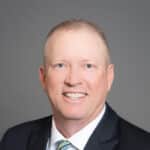

Ambassador Event: Growth of the Bioscience Industry in Greater Phoenix
Published: 07/11/2024
Updated: 07/16/2024
CBRE and GPEC released their latest report on the regional bioscience ecosystem at a panel event with industry experts
With a history of established healthcare and an environment that encourages innovation, Greater Phoenix has seen significant growth in biosciences in recent years.
That is according to a new study led by CBRE and the Greater Phoenix Economic Council (GPEC). Its findings were released at a GPEC Ambassador Event on April 30 with a panel of industry experts who discussed the key factors contributing to the momentum in the ecosystem, including the increase in venture capital funding and targeted workforce and academic growth.
The panel consisted of:
• Aric Bopp, Executive Director, Discovery Oasis at Mayo Clinic, Arizona
• Kevin Carranza, Senior Director, Business Intelligence, GPEC
• Matthew Gardner, Head of Advisory Life Sciences, Americas, CBRE
• Nicole Hill, Program Manager, Bioscience Roadmap & Research, Flinn Foundation
• Carlos Pietri, Senior Field Research Analyst, CBRE
• Cathy Teeter, Managing Director, Advisory & Transaction Services, CBRE
• Rob Van Tuyle, Chief Operating Officer, Vitalant Blood Services
• Allison Bakovic, Ph.D. (Moderator), Vice President, Bioscience Business Development, GPEC
Greater Phoenix: An Emerging Bioscience Hub
According to the 2024 Bioscience Industry Report, there has been notable growth in the bioscience and life sciences market in Greater Phoenix over the past two decades. Carranza attributed this to a variety of factors including university programs, healthcare innovation hubs and remarkable net migration to the region, which has ranked as a top-five market for net population growth over the last decade and is projected to grow three times faster than the national average through 2030. “Developments coming down the pipeline such as educational ones like the University of Arizona’s CAMI, or whether it’s federal research like the National Institutes of Health (NIH) opening its diabetes disease research center at Phoenix Bioscience Core, or healthcare-driven [components] like Discovery Oasis, I would expect to see continued advancements as those land in the region,” Carranza said.
Greater Phoenix has more than 26,000 bioscience-related jobs in the region, marking a 66 percent increase since 2015. Of the 40 U.S metros with bioscience and life science employment of 10,000 or more, Greater Phoenix ranked as the fourth top metro in industry job growth rate between 2015 and 2023.
When looking at employment in bioscience manufacturing, Greater Phoenix went from a top-30 market to a top-15 market between 2015 and 2023 with the addition of 6,000 jobs - net growth that placed the region ahead of competitive metros such as San Jose and Boston. In the same period, employment numbers in pharmaceutical and medical manufacturing, and medical equipment and supplies manufacturing in the region, where the market is home to companies such as Dexcom, W.L. Gore & Associates, Stryker and Medtronic, experienced 147 percent and 156 percent growth, respectively. “We are not limited to manufacturing growth. R&D in biotechnology and physical engineering and life sciences are [also] bringing very strong growth,” Carranza added.
Venture capital (VC) funding has also seen a similar spike – Arizona received $623.3M in total life sciences VC funding between 2019 and 2023. During that same time period, regional healthcare providers received $4 billion in capital investment, and three institutions that received more than $59 million in NIH funding are among top employers in the region. “In 2023, Greater Phoenix ranked among the top 50 venture capital ecosystems worldwide, establishing itself as a global venture capital ecosystem,” Pietri said.
This steady progress has drawn federal attention and investment in four emerging industry hubs: Phoenix Bioscience Core, Phoenix Medical Quarter, Mayo’s Discovery Oasis and Scottsdale Cure Corridor. These hubs are home to notable industry leaders including Translational Genomics Research Institute, the NIH, Exact Sciences, Barrow Neurological Institute and Banner Health.
Read more: Greater Phoenix: An Emerging Bioscience Hub - 2024 Report
Innovation and Regional Assets Driving Industry Growth
The panelists, representing various sectors within the industry, emphasized land availability, university innovation and Greater Phoenix's appeal to knowledge workers as critical factors to industry growth.
Hill highlighted the abundance of developable land in Phoenix as a significant advantage. “We have a lot of capability and a lot of interested professionals to help us develop that, to make sure … gaps that we have are being filled,” she said. “It’s not always common in a large city.”
Factors such as quality of life and favorable tax structure, direct flights from Phoenix Sky Harbor Airport to key European markets such as Paris and London, as well as public-private partnerships focused on bioscience development also contribute to a welcoming environment for the industry.
Strong university systems, which are attracting innovative minds, were another factor the panelists highlighted. Van Tuyle reflected on the recent influx of skilled professionals choosing Greater Phoenix as their new home because the region is comparable to the Bay Area in terms of education, and VC funding and innovation is driven by hospital systems and centers with global life sciences footprints.
Gardner emphasized the role that university programs, such as Arizona State University’s (ASU) Venture Devils, play in maintaining the steady growth of bioscience and healthcare innovation in the region. “You'll need lots of support around the locally grown startups and companies that land here,” he said. “You'll need mentor networks to help those companies find their way.”
A Future Fueled by Collaboration and Funding
Alignment and collaboration across sectors and public-private entities, particularly universities and hospitals, are crucial for advancing innovation. Greater Phoenix has a unique network of colleges and universities such as Creighton Medical School and The Benedictine University which have opened satellite campuses in recent years. Moreover, environments designed for collaboration and entrepreneurship such as Mayo Clinic’s Discovery Oasis and the ASU MedTech Accelerator support intensified research and the development of innovative clinical approaches to medicine and healthcare, which ultimately improves patient outcomes, Bopp added.
Healthcare systems, many of which are nonprofit, benefit from this collaboration. “I think that's a great opportunity that comes from us working well together that includes the university systems, the healthcare systems and the suppliers such as us. We are seeing some advancements in science that are spurring innovation but leading to better patient outcomes, which is fundamentally what we are here to do,” Van Tuyle said.
When compared to life sciences hubs right on the coast, the panelists agreed Greater Phoenix is on its way to becoming an established market while calling out access to capital, talent acquisition and infrastructure development as key areas requiring ongoing attention to achieve this stature.
“[When we talk] about cell and gene therapies, whether it's radioactive isotopes for cancer treatments, a lot of them will have an East Coast presence, maybe a Midwest presence and a West Coast presence,” said Bopp. “I think Phoenix should be the only option when you're looking west of the Mississippi… Phoenix is the spot for West Coast biotech, Phoenix is hot for life sciences. We need to make some strategic investments to really push the opportunity forward, because we'll reap the benefits of it for many years to come.”
Meet the Panel
Aric Bopp, CEcD
Executive Director
Discovery Oasis at Mayo Clinic, Arizona
Kevin Carranza
Senior Director, Business Intelligence
Greater Phoenix Economic Council
Matthew Gardner
Head of Advisory Life Sciences, Americas
CBRE
Nicole Hill
Program Manager, Bioscience Roadmap & Research
Flinn Foundation
Carlos Pietri
Senior Field Research Analyst
CBRE
Cathy Teeter
Managing Director, Advisory & Transaction Services
CBRE
Rob Van Tuyle
Chief Operating Officer
Vitalant Blood Services
Allison Bakovic, Ph.D. (Moderator)
Vice President, Bioscience Business Development
Greater Phoenix Economic Council







